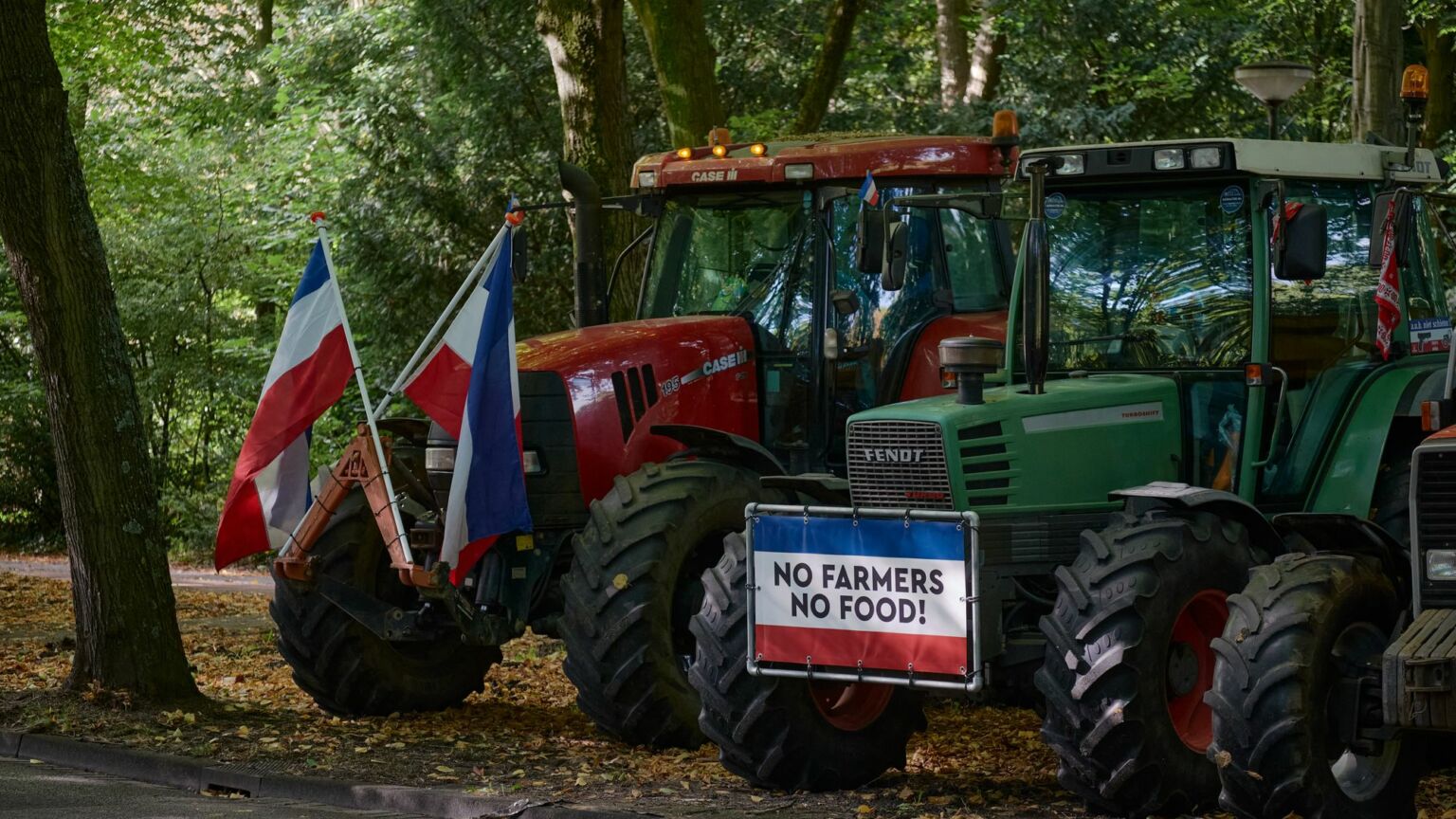The Dutch farmers’ revolt is far from over
The EU’s stringent climate targets are a threat to their way of life.

Last week, the European Commission gave the Dutch government the go-ahead to start buying out farms in order to meet the EU’s climate targets.
Under the European Green Deal of 2020, the EU plans to be climate neutral by 2050. As part of this, under the European Climate Law of 2021, the EU wants to reduce greenhouse-gas emissions by a minimum of 55 per cent by 2030.
This has exerted a considerable amount of pressure on the Dutch government in particular. In turn, the government is now exerting pressure on farmers. That’s because Dutch farms have been blamed for the Netherlands’ high levels of greenhouse-gas emissions, especially nitrogen emissions, caused by fertilisers and cattle excrement. And so in 2022, the Dutch government put forward a set of agricultural reforms in order to meet the EU’s targets.
These proposals have sparked uproar among farmers. Many of the reforms would require cattle farmers to greatly reduce their livestock or to stop farming completely. The Dutch government’s own forecasts have estimated that approximately 3,000 farms might have to close.
In response, Dutch farmers have been taking to the streets in protest. Back in March, an estimated 10,000 farmers and their supporters descended on the Hague, to protest at what they see as unreasonable environmental policies threatening their livelihoods. It is proving a popular position. A new political party, the BoerBurgerBeweging (Farmer-Citizen Movement), which formed on the back of the farmers’ protests, dominated the Dutch local elections held in March.
The proposed buy-out of farmers is the government’s latest attempt to appease this angry movement. It is effectively proposing to purchase the land and property of cattle farms emitting the most greenhouse gases (so called ‘piekbelasters’ in Dutch – or ‘peak burdeners’) for up to 120 per cent of their market value. It is also extending a version of this offer to some dairy, pig and poultry farmers, even if they are not in the piekbelasters category (these farmers would instead receive up to 100 per cent of the market value of their property).
The response to this latest proposal to buy-out some farmers has varied. Dutch media have largely reacted positively. They accept the narrative that the Netherlands is in the grip of a ‘nitrogen emergency’. Like the government, they largely blame the farmers for this. They see the buy-out offer as a viable solution.
Farmers and their supporters, however, are deeply suspicious of the offer. They claim that farmers are being backed into an unenviable corner. Many farmers will struggle to survive if they reduce their yields in order to meet the EU’s emissions target. They feel that the government is not really offering a choice at all. They feel they either have to accept the buy-out or face ruin.
Many also fear what could be coming next. The government is clear that it wants close up to 3,000 farms. If there is not sufficient uptake for this latest proposal, compulsory-purchase orders could be coming down the line.
Some farmers also claim that the government has its own ulterior motive for buying up farmland. There is a desperate need for new housing in the Netherlands, but very little available land on which to build it. Many have accused the government of planning a land grab.
Moreover, farmers that accept the buy-out offer will not be allowed to start similar operations in the Netherlands or any other EU country again. It is easy, therefore, to see why many farmers see all this as an attack on their way of life.
There may be some farmers who are resigned to their fate. But many remain determined to fight on. The Dutch farmers’ revolt is far from over.
John Lee Shaw is a freelance writer based in the Netherlands. Follow him on Twitter: @JohnLeeShaw.
Picture by: Getty.
To enquire about republishing spiked’s content, a right to reply or to request a correction, please contact the managing editor, Viv Regan.








Comments
Want to join the conversation?
Only spiked supporters and patrons, who donate regularly to us, can comment on our articles.